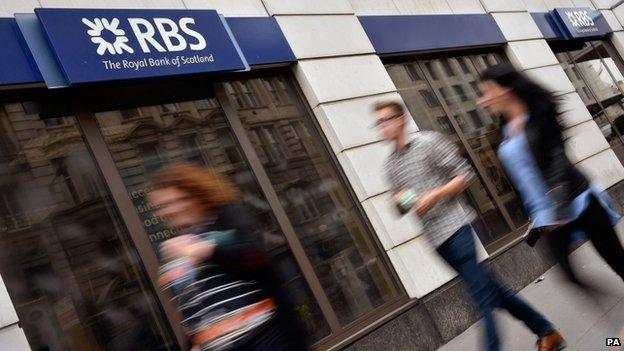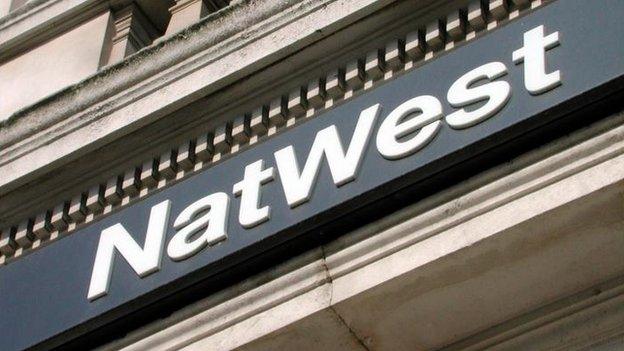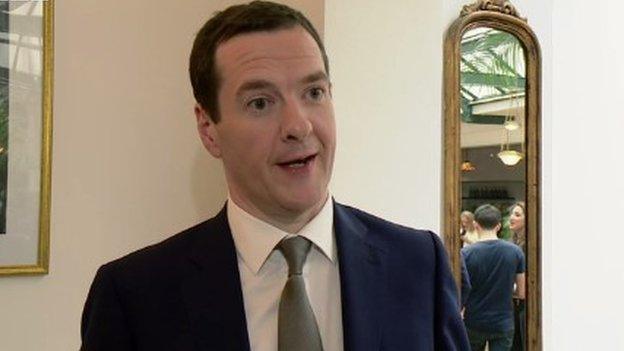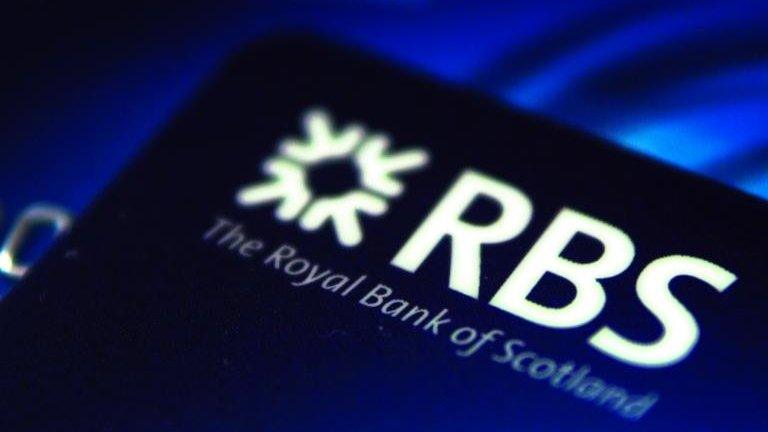RBS: Firesale of the century?
- Published

If you think Royal Bank of Scotland hasn't come far in the seven years since its crash, you'd have a point.
It's still not clear that it's ready for a sell-off of the UK government stake, but that's what it's getting anyway.
You might, meanwhile, be missing another point that the £45bn bail-out nearly seven years ago was not (back then) intended to turn a profit.
It was intended to save the bank. And it did. Our expectation of profit on our investment followed later.
Back then, there was a chance that the whole jingbang could have gone the way of the £12bn raised from shareholders the previous spring - up the Swanee, or down the Gogar Burn.
'Appropriate'
With the first tranche of sales now under way, because the financial investment arm of the Treasury says "it would be appropriate", this is being seen by RBS as an opportunity to underline how much else has changed.
It's less than half the size it was, in assets - down from £2.2 trillion to £945bn. (That's still quite big.)
It's core capital ratio (the main measure of its buffer against losses) has risen from a reckless 4% to 12.3%, continuing to rise in line with the demands of regulators.
When it crashed, it had nearly 200,000 employees in 51 countries. At the last count, it was 109,200, while aiming to cut to only 13 countries, only to serve its UK and Ireland core. Six years ago, the UK accounted for 48% of RBS activities: that's now 80%.
A positive reading of the share price has it on an upward trend. But not if you look at the last three years, when the share price has been stubbornly stuck around 20% below the break-even price for the UK taxpayer's £45bn.
Fred Goodwin
For all that the half-year results last week sought to get the dirty laundry out in the open, there's lots that still needs to be sorted through, and that uncertainty has kept the share price depressed.
Much of that known unknown is the litigation looming on the 2008 rights issue, with the question of whether shareholders were knowingly misled by Fred Goodwin and his top team about the true state of RBS's vulnerability.
Much to the disappointment of the current management, they have recently failed in their attempt to remove Mr Goodwin from proceedings.
That's only going to complicate their case, and bring back unhappy memories, in a case which carries an estimated legal bill for RBS of £42m.
Trust in the red
Meanwhile, customer sentiment to RBS is not looking good. The half-year results show that the opinion surveying of customers suggests Scottish customers have a much dimmer view of their bank than those who bank under its NatWest brand in England and Wales.
Asked if they trust their own bank to "do the right thing", there was a two percentage point deficit in Scotland in April to June, and a 48 point positive south of the Border.

Scottish customers of RBS appear to have a much dimmer view of their bank than those who bank under its NatWest brand in England and Wales
Would they recommend the bank to a friend? The RBS count in Scotland was 10 points into the red during the second quarter, while NatWest was ten points to the good.
RBS in Scotland was in more negative territory with business customers. That relative weakness, when set alongside NatWest, emphasises that the RBS brand remains troubled, even with its own loyal customers.
'Family silver'
But George Osborne is pressing ahead anyway, with a sale of more than 5% of the bank to institutional investors, at well under the break-even price.
The plan appears to be that this will start a process which itself improves confidence, the share price reflects that with an upward rise, and further tranches of shares are subsequently offloaded.
One question is: why is it now appropriate? The first condition of a sale is that it provides the taxpayer with value for money. It's not clear how a sale at the current price does so.
When asked on BBC Radio Scotland, Treasury minister Harriet Baldwin's answer was, to paraphrase: because the governor of the Bank of England said it's time to start reducing public ownership, so that capital can be more efficiently allocated.

George Osborne is pressing ahead with a sale of more than 5% of the bank to institutional investors at well under the break-even price
Then: why now? The first week in August doesn't seem the most liquid time to be diving into the market, when traders are diving into distant pools, on holiday. But we're told there was healthy demand all the same.
Another question is: how fast and how long will this process be? How much of a stake is George Osborne wanting to sell this year - a year which he has already pronounced will be the biggest ever year for privatising UK government assets - surpassing even Margaret Thatcher in her "selling off the family silver" heyday.
National asset
And yet more: is there any protection planned for RBS as a significant national asset - one that represents around a quarter of UK business lending, and a much higher proportion in Scotland?
Could the government structure the sale to ensure that it retains a stake with which to keep control in Britain (and the headquarters in Scotland)? Would it want to?
And if RBS is to be returned to the stock market in private hands, then it becomes vulnerable to takeover and to break-up. While the UK government has held around 80% of it, these have not been questions to trouble us. And remember that it didn't take TSB long after parting with Lloyds to find itself under Spanish ownership.
So is there any UK government policy on protecting RBS, including its vital role in supplying finance to UK business?
Indeed, is there any Scottish government policy on that? It has been - over the seven years on - uncharacteristically reticent about what went wrong at RBS, or what should happen to it now.
• Update: The SNP's deputy leader, Stewart Hosie, has agreed that RBS shares should be sold off by the UK government, but warned against the tax-payer being "short-changed" instead of "getting every penny back".
He said: "It is to be welcomed that RBS is moving from government ownership back into the private sector, however it should not be on the cheap."
He added the sale had to be open and honest. "Right now, there is some very real concern that the chancellor is trying to cut and run".
- Published4 August 2015
